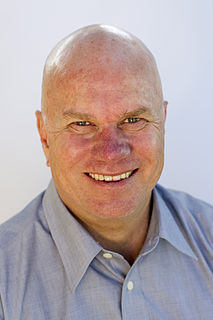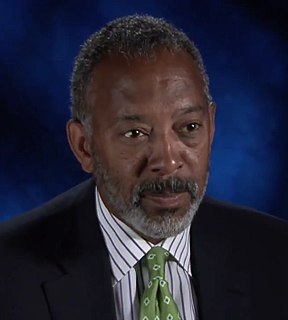A Quote by Pierre Omidyar
We have technology, finally, that for the first time in human history allows people to really maintain rich connections with much larger numbers of people.
Related Quotes
In a few hundred years, when the history of our time will be written from a long-term perspective, it is likely that the most important event historians will see is not technology, not the Internet, not e-commerce. It is an unprecedented change in the human condition. For the first time - literally - substantial and rapidly growing numbers of people have choices. For the first time, they will have to manage themselves. And society is totally unprepared for it.
The solution was eventually found by Johannes Gutenberg, who made the breakthrough that finally established printing as the communication technology of the future. Similar ideas may have been under development around the same time in Prague and Haarlem. But in business, the key question is not about who else is in the race, it's about who gets there first. Johannes Gutenberg was the first to make the new technology work, ensuring his place in any history of the human race.
The United States of America was the first place on earth where average people had the opportunity to become the greatest among all people. It was the first time in human history where people were allowed to pursue the best of their abilities to whatever desire they wanted, because it was a nation founded under the concept of human beings being born free.
Fewer and fewer people are paying larger and larger percentage of the tax burden, as you know, almost half the people pay no income taxes at all. We're going to have more people in the wagon than we got pulling the wagon before long and that's not going to work. Those jobless numbers, you know, go hand-in-hand with those tax numbers.
I am deeply activated by a sense of history, and have been since I was a tiny child. Really feeling that these were the times, we were the people, this was the most critical time in human history. Other people thought their times were the pinnacle and this is it. This is where we really, together, make a decision of whether to evolve or perish.
History is not everything, but it is a starting point. History is a clock that people use to tell there political and cultural time of day. It is also a compass that people use to find themselves on the map of human geography. History tells a people where they have been and what they have been, where they are and what they are. Most important, history tells a people where they still must go, what they still must be. The relationship of history to the people is the same as the relationship of a mother to her child.
The great question for our time is, how to make sure that the continuing scientific revolution brings benefits to everybody rather than widening the gap between rich and poor. To lift up poor countries, and poor people in rich countries, from poverty, to give them a chance of a decent life, technology is not enough. Technology must be guided and driven by ethics if it is to do more than provide new toys for the rich.
I went to see Chris Rock on Saturday night here in Atlanta, and he made a statement in his comedy. He said, look, when you're the big person, when you're the rich person, poor people can say stuff about you, but it's downright wrong and brutal for rich people to beat up on poor people. He said people who are larger can lampoon people who are skinnier, but not the opposite.
The 1980's was the first time in the history of imperialism that people from the imperial society went in substantial numbers to stay with the victims in the hope that their presence would offer some protection and some help. These were not the usual students from elite universities. These were people straight out of middle America.
There's one thing about freedom ... each generation of people begins by thinking they've got it for the first time in history, and ends by being sure the generation younger than themselves have too much of it. It can't really always have been increasing at the rate people suppose, or there would be more of it by now.


































